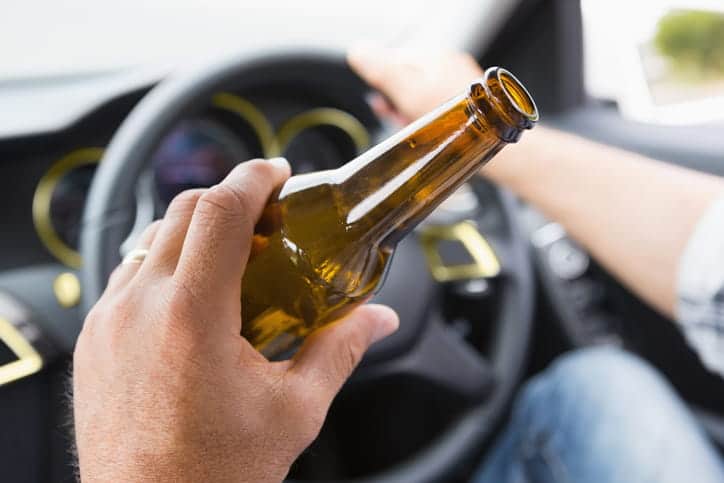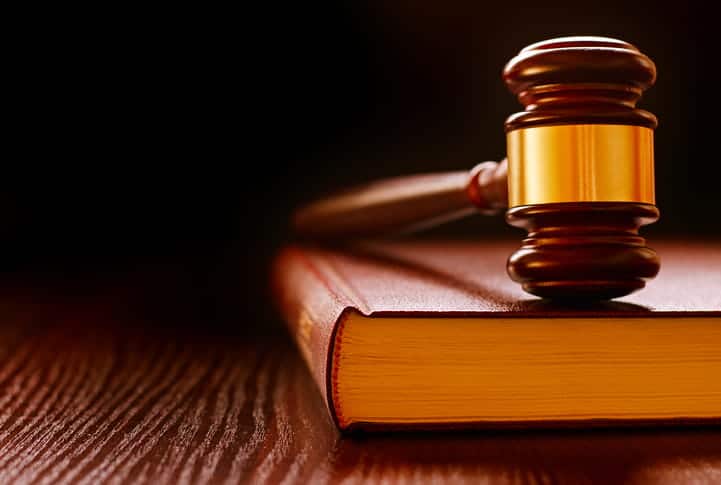Can You Sue a Drunk Driver?
In 2020, the number of reported car accidents exceeded 5.25 million. Almost 36,000 of these accidents involved fatalities. While unpreventable events such as bad weather caused some accidents, driving under the influence (DUI) of alcohol caused 35% of the accidents involving fatalities, claiming 13,695 lives.

Although all drunk driving accidents are preventable, the number of fatal car wrecks caused by impaired driving in 2020 was 14% higher than the number of fatal car accidents in 2019, and numbers have continued to rise. According to the National Highway Traffic Safety Administration’s (NHTSA) report, every 39 minutes, drunk driving claims a person’s life in a fatal accident.
You may be wondering if you can sue a drunk driver if you were in an accident they caused. Let’s look at Florida’s drunk driving laws, your options, and how a drunk driving accident lawyer can help.
Were you injured in a drunk driving accident? Contact Jack Bernstein, Injury Attorneys, now.
Do Florida’s no-fault laws impact my ability to sue a drunk driver?
Florida is a no-fault state, which means all drivers must carry property damage liability (PDL) and personal injury protection (PIP) insurance. After a car accident, you’ll file a claim with your insurance company to cover the costs of vehicle repairs and medical bills.
No-fault laws prevent minor car accident lawsuits, but car accident victims can take legal action if they meet the criteria for legal recourse. Suppose your car accident caused you to suffer a spinal cord injury (SCI) in a drunk driving accident and need surgery and an assistive device to regain your ability to walk. Permanent injuries are grounds for a drunk driving car accident lawsuit.
Is the driver the only one liable for a drunk driving accident?
The drunk driver may not be the only party legally responsible for your accident. Florida’s dram shop laws hold bartenders and alcohol sales vendors liable if the server or seller does one of the following:
- Supplies alcohol to a known alcoholic
- Supplies alcohol to a person under Florida’s legal drinking age (21)
Are the laws the same for driving while under the influence of narcotics?
Driving under the influence (DUI) is the commonly used legal term that applies to drunk driving cases. It also refers to any driver using substances that affect their ability to focus and think clearly. DUI accidents include accidents caused by a driver who has used or consumed the following:
- Alcohol
- Chemical substances
- Controlled substances
Police have several methods they can use to substantiate DUI charges, including the following:
- Establish via a blood test that the driver’s blood alcohol content (BAC) level meets or exceeds 0.08
- Use a breath alcohol test to confirm the driver’s BAC exceeds the legal limit
- Use mobility and coordination tests to confirm the driver does not have control of their normal faculties
DUI charges could apply to any driver using the following:
- Alcohol
- Legal drugs
- Illegal drugs
- Prescription medications
The penalties for driving while intoxicated vary. The courts consider the driver’s record and the circumstances of the incident. Drivers must pay a fine after their first conviction, but the amount depends on how high their BAC was and whether they were transporting a minor. Drivers may also be imprisoned for nine months or less.
Subsequent convictions result in higher fines and longer prison sentences. There are also additional penalties for drunk drivers causing accidents resulting in severe injuries. Drunk drivers causing fatal accidents could be charged with DUI manslaughter or vehicular homicide. A DUI manslaughter conviction could involve a lengthy prison sentence, including sentences of 20 years or more.
How long do I have to file a lawsuit if I have been injured by a drunk driver?
Filing deadlines apply to civil and criminal legal matters. The deadlines prevent court backlogs from an influx of old cases and prevent legal claims after witnesses have died or relocated or it’s too late to recover critical evidence.
Florida gives car accident victims 48 months to initiate legal action against the at-fault party who caused the accident. This deadline only applies to filing the suit and serving the defendant with notice of legal action. The lawsuit may not be resolved until more than four years have passed, but it can continue, provided that you meet the filing deadline.
Does drunk driving mean I am entitled to a larger settlement?
The reason car accident victims file civil lawsuits for drunk driving accidents is to recover compensation for their expenses and suffering. The amount a drunk driving accident victim can receive depends on multiple factors, including the costs incurred, the severity of the injuries, and the factors surrounding the accident. Whether a drunk driving accident victim will receive a larger settlement than other car accident victims depends on these variables and the circumstances involved in other accidents.
You may have grounds for a higher settlement if a server or seller is liable. You may also receive a larger settlement if you have higher costs from your accident or if there are grounds to seek punitive damages.
Monetary damages
Monetary or economic damages are calculated expenses arising because of your accident. They can include any bills or calculable costs caused by property damage and physical injuries. Grounds for monetary damages can include any of the following:
- Burial expenses
- Childcare costs
- Funeral expenses
- House cleaning bills
- Lost income
- Job retraining
- Medical bills
- Property repairs
- Property replacement
- Travel expenses
Suppose you’re a construction worker and you’re in a drunk driving accident causing an SCI. You’ll need surgery and extensive medical treatments over the next two years, but doctors doubt you’ll make a full recovery. Since your injury will prevent you from returning to your career, you can claim future wages lost and seek compensation for job retraining to pursue a new career after your treatment.
Non-monetary damages
Non-monetary or non-economic damages acknowledge the personal suffering accident victims endure. It’s harder to apply dollar amounts because the grounds for non-monetary damages don’t come with price tags. Fortunately, your car accident attorney can help determine how much to seek.
Valid reasons to seek non-economic damages include the following:
- Loss of consortium: You could lose your intimate relationship with a partner after an accident. Loss of consortium refers to this loss and can apply to accidents involving the death of a partner or causing one or more partners to be unable to be intimate after the accident.
- Mental health issues: Car accident victims may suffer psychological trauma, resulting in anxiety, depression, or post-traumatic stress disorder (PTSD)
- Pain and suffering: This term applies to physical and emotional pain and suffering. A drunk driving accident victim can seek pain and suffering damages because of anguish, grief, or physical pain.
- Quality of life: Victims can seek compensation if the accident adversely affects their quality of life. Suppose one of your hobbies involves racing go-karts. After the accident, you develop a phobia of motor vehicles, and you’re unable to drive. You could seek reimbursement for transportation costs with your economic damages, and you can seek compensation for losing your ability to engage in one of your favorite hobbies.
Punitive damages
Punitive damages are financial penalties that may apply to some car accident cases. Winning punitive damages at trial means proving the drunk driver’s gross negligence or intentional reckless actions caused your accident.
Since drunk driving is illegal, proof the driver was drunk can help establish the legal grounds for punitive damages. Your case could be stronger if the drunk driver is a repeat offender with prior convictions for driving under the influence.
Do I qualify for Florida’s Crime Victim Compensation program if I have been injured by a drunk driver?
Florida’s Crime Victim Compensation program provides financial assistance to victims of misdemeanors and felonies. Since all DUIs qualify as either misdemeanors or felonies, drunk driving accident victims can seek assistance from the program.
You could qualify for financial assistance to cover medical expenses, lost income, funeral bills, and other accident-related costs.
How can a personal injury attorney help me after an accident with a drunk driver?
Hiring a personal injury attorney is the best way to ensure you get justice after a drunk driving accident. Your attorney will file your claim before the statute of limitations expires. Your lawyer will also investigate your case, talk to witnesses, and gather evidence to support your claim.
You won’t have to face the defendant’s insurance company or attorney alone. Your lawyer will handle pretrial negotiations, seek a fair settlement, and use existing case precedents and evidence to fight for every cent you deserve.
Call Jack Bernstein, Injury Attorneys today

Jack Bernstein, Injury Attorneys, represents Tampa area residents affected by drunk driving accidents. Our legal team will prepare your case while you get the treatment you need to begin your recovery. We’ll update you on your case status so you’ll always know what’s happening with your lawsuit, and we’ll explain your options so you can make informed decisions until you receive fair compensation for your accident.
Contact Jack Bernstein, Injury Attorneys, for a free consultation today and find out how we can help you get justice after your drunk driving accident.
Sources:
Bieber, C. (2023). Car Accident Statistics for 2023.
Drunk Driving. (2023).
Fast Facts 2021 Yearly Snapshot. (2023).
